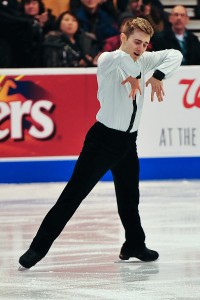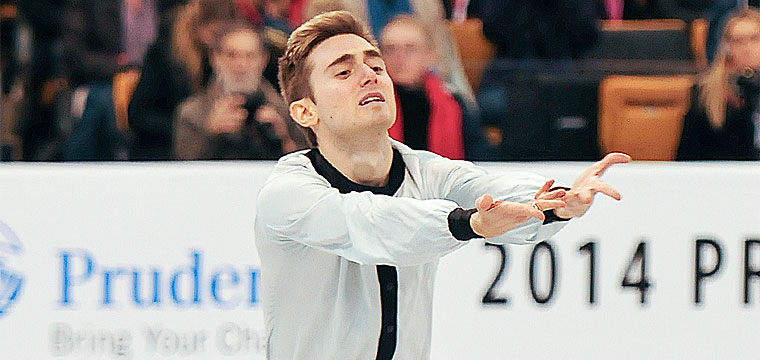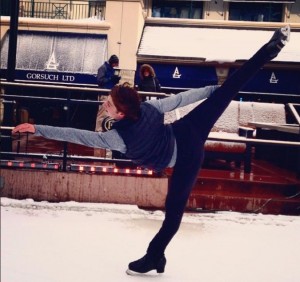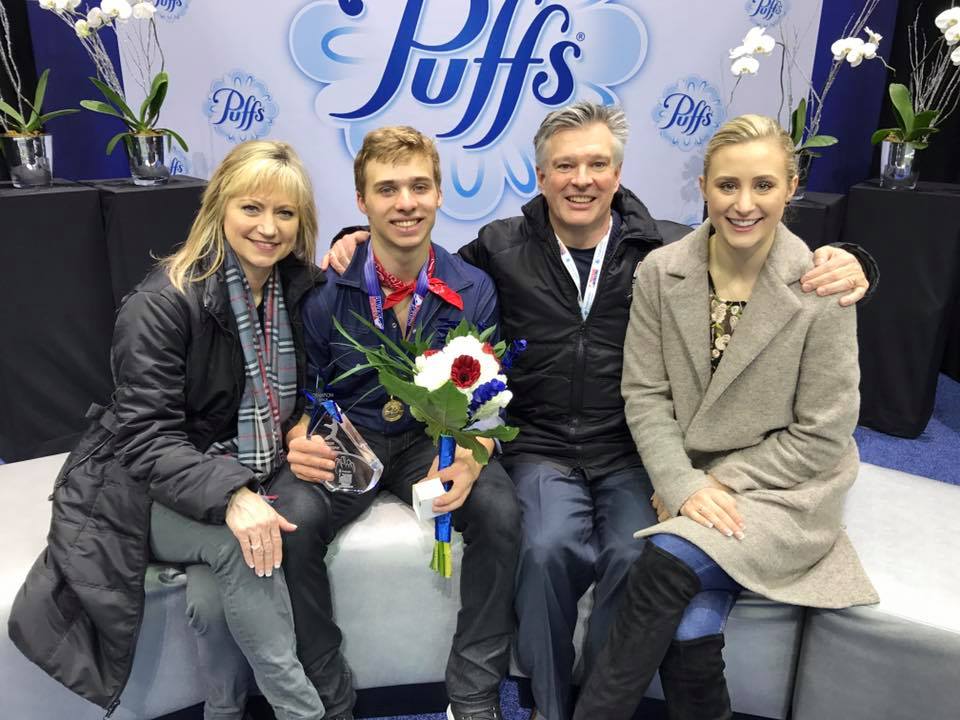By Cristina Valencia
Douglas Razzano doesn’t remember much from his first days on the ice at the age of 9, but he probably will never forget his recent performance at the 2014 U.S. Figure Skating Championships in Boston in January. Citing this as the best moment of his career, he delivered an emotional and tear-jerking free skate, after which he reached down to plant a kiss on the ice.
“Mome nts like that make it all worth it, when everything comes together at the right time,” Razzano said.
nts like that make it all worth it, when everything comes together at the right time,” Razzano said.
Razzano would end up finishing in sixth place and would be named first alternate for Four Continents. But just a few months earlier, Razzano had considered hanging up his skates for good.
In August of last year, he considered quitting after competing at the 2013 Glacier Falls Summer Classic. The season had been a constant struggle for him and he found himself on the verge of a meltdown. However, after hitting rock bottom, there was nowhere else to go but up. And that is exactly what he did. Razzano overcame the demons that were haunting him and decided that his self-worth did not depend on winning. If he was going to keep skating, he was going to do it for himself and not for the sake of winning.
“Winning cannot be the driving force,” Razzano stated.
In March, Razzano went on to win silver at the Challenge Cup in the Netherlands. Even though he will not commit to four more years, he will be competing next season and will take it year by year.
When asked about the recent controversy involving the changes proposed by ISU President Ottavio Cinquanta, he expressed disagreement over most of them. Although Razzano doesn’t personally like the short program, he understands that it is necessary. He also believes that anonymous judging has to go. The only change that he wouldn’t be opposed to is shortening the lengths of the men’s and pairs free skates. Razzano acknowledges the subjectivity of the sport and though it’s one of his least favorite things about skating (besides falling), he says it comes with the territory.
Razzano is currently working hard on his quad toe and improving its consistency. He has come a long way since he was just a boy, utterly inspired by the 1998 Nagano Olympics. Razzano is just as charismatic off the ice as he is on it, and credits his level of artistry on the ice to a combination of training and maturity. Most importantly, he believes that growing up and being comfortable in your own skin allows you to express yourself more freely on the ice. He certainly proved that with his beautiful and moving free skate at Nationals this year.







